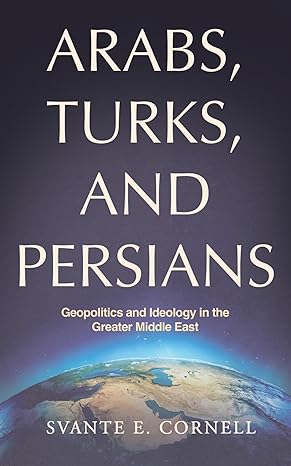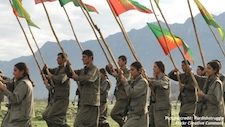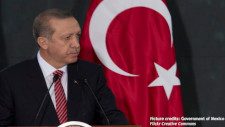Arabs, Turks and Persians: Geopolitics and Ideology in the Greater Middle East
Svante E. Cornell
 For decades, the Greater Middle East has been a leading challenge to American foreign policy. This vast region – ranging from North Africa in the west to Afghanistan in the east, and from the borders of Central Asia down to the Horn of Africa in the south – has been a cauldron of turmoil that has affected not just American interests, but generated threats to the American homeland.
For decades, the Greater Middle East has been a leading challenge to American foreign policy. This vast region – ranging from North Africa in the west to Afghanistan in the east, and from the borders of Central Asia down to the Horn of Africa in the south – has been a cauldron of turmoil that has affected not just American interests, but generated threats to the American homeland.
The multitude of challenges in this region has led to some confusion. What should be the focus of U.S. policy in the Greater Middle East?
This book explores this state of affairs and its implications by delving deeper into how the current geopolitics of the Greater Middle East came to be. A first few chapters look back to the history of the region and the historic rivalries among Turks, Arabs and Persians up to the end of the Cold War. The book then examines the main current power centers of the region – Iran, Saudi Arabia and Turkey. It then turns to the geopolitical competition among them in recent years, starting with Iran’s efforts to build an “Arc of Domination” across the region.
The book covers the advance of Islamists following the Arab Upheavals, the civil war among the Sunnis from 2013 to 2018, America’s pendulum swings with regard to Iran policy, and the reshuffle of the region following Turkey’s turn in a more nationalist direction. Finally, the book ends with an attempt to draw out implications for America’s approach to the geopolitics of the Greater Middle East.
Picture: AFPC Press/Armin Lear, 2025
Related Publications
-
ISDP Annual Report 2023
ISDP’s Annual Report for the year 2023. We look back on 2023, a year in which tensions and conflicts captured the strategic space in ISDP’s focus areas, making headlines around […]
-
Turkey’s Opposition Can’t Win Without the Working Class
Kemal Kilicdaroglu, the leader of Turkey’s main opposition Republican People’s Party (CHP), has a realistic chance of defeating President Recep Tayyip Erdogan in the upcoming presidential election on May 14. […]
-
Promise And Peril In The Caucasus
America’s national security bureaucracy separates the Caucasus and the Middle East into different bureaus, with Central Asia in yet another office. This is part of the reason the U.S. has […]
-
Turkey’s Problem Isn’t Sweden. It’s the United States.
The issue isn’t what Sweden says or does but what the United States does or fails to do on the ground in Syria that matters for Turkey’s national security interests. […]
-
TURKISH QUAGMIRE: WHY TURKEY BLOCKS SWEDEN’S NATO ACCESSION
Turkey was bound to have issues with Sweden and its pro-Kurdish stance, and singled out Sweden because of its longstanding commitment to Kurdish aspirations. However, it is the continued US […]




